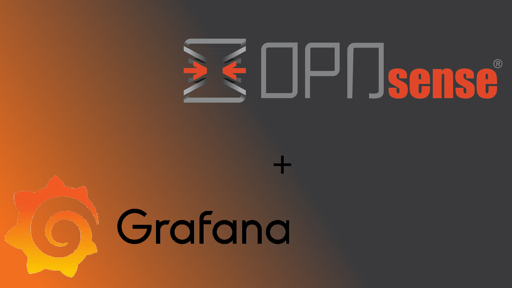Monitoring OPNSense Logs with Grafana Loki
(roguesecurity.dev)
from starkzarn@infosec.pub to selfhosted@lemmy.world on 24 Apr 2025 13:57
https://infosec.pub/post/27200076
from starkzarn@infosec.pub to selfhosted@lemmy.world on 24 Apr 2025 13:57
https://infosec.pub/post/27200076
My first blog series on headscale with traefik through podman quadlets was pretty well received on here. I’m just getting started with this blog, and thought the second topic I recently worked on might be popular in this crowd too: a lower resource method of centralizing logs for OPNSense with Grafana Loki (and Alloy) including geoIP!

threaded - newest
Just what the doctor ordered :) I’ll definitely go through it soon. Thanks for sharing!
Certainly! Feel free to comment on any hardships, if I notice a glaring omission or something I’m happy to fix it. This is also a pretty new setup for me, so I’m still tweaking and working through what will become part 2 here in Grafana, currently.
Oh hey, it’s you again. I hope your blog continues on for some time to come
🤘
You had me at “No Java”.
Isn’t it the best? Somehow all the big log and aggregation stacks are java… Elk, graylog, wazuh…
Serious question:
Why opensense over openwrt?
What would I want that OpenWRT doesn’t give me? Is there any reason for me to switch?
Great question, I’ve asked myself the same thing.
First, in my opinion they serve to achieve different things. While openwrt is a firewall, it’d a simple zone based firewall and it designed primarily as router firmware, not firewall software.
Opnsense is BSD based, openwrt is Linux based. Those both haves pros and cons. BSD has serious pedigree in the networking world. Juniper switches are still based on BSD even. Openwrt gets the Linux traffic shaping goodies like cake though.
I chose openwrt because it’s more suited to my environment, where I have 10 VLANs, a 10G fiber core, and want IDS/IPS. Openwrt is meant to be lighter weight, but is less feature-full.
Do you mind putting some screenshots of what the final dashboard looks like?
Also, how much IO wear and tear does this put on a solid-state drive?
I would love to if I had them! Haha. I’m working on the dashboard right now, which will be part two.
I don’t have a great answer on the IOPS requirement, but I imagine it’s less than something based on elasticsearch/open search based on the reindexing. I’ll try and benchmark it if possible.